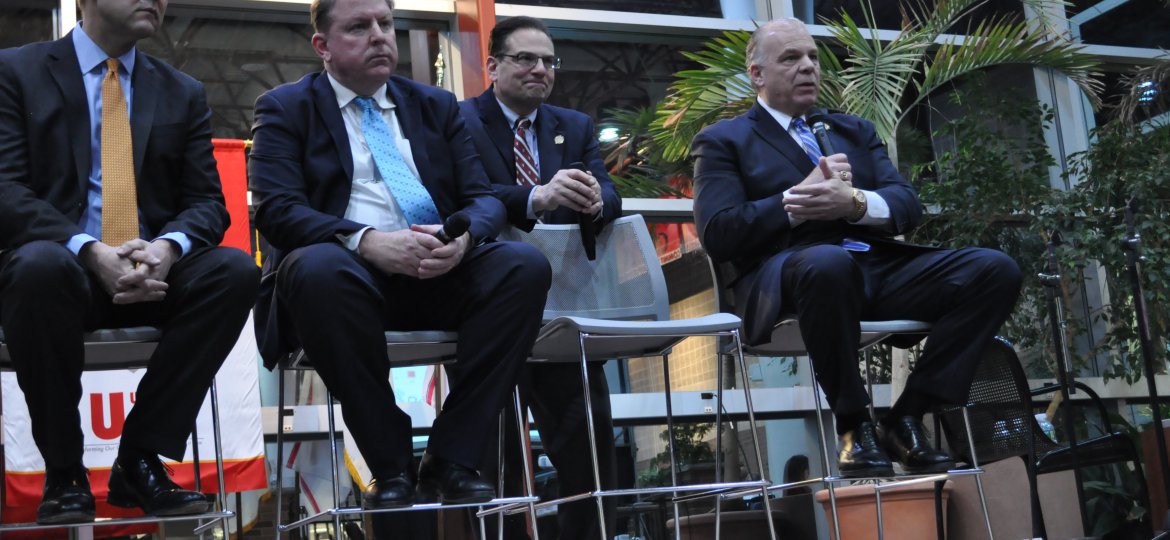
Cranford – Speaking at a bipartisan Town Hall meeting at Union County College, Senate President Steve Sweeney today emphasized the need to confront the state’s mounting fiscal problems and warned that New Jersey won’t be able to make critical investments in education, transportation, higher education and social services unless it enacts major structural reforms to address the looming budget crisis fueled by runaway pension and benefit costs.
Joined by Senator Nicholas Scutari and Senate Republican Leader Tom Kean (R-Union), Senator Sweeney said New Jersey is facing a dire fiscal crisis and laid out a series of solutions developed by the bipartisan Economic and Fiscal Policy Workgroup of economists, academics and fiscal policy experts to address the problem.
“We have to be willing to confront the reality of the fiscal problems we face and realize the need for structural reforms,” said Senator Sweeney (D-Gloucester/Salem/Cumberland). “If we don’t fix the built-in problems, we will be staring at a $4 billion budget deficit in the years ahead. That will cripple our ability to fund our most important priorities, such as expanding preschool, investing in our universities, fully funding state aid to local school districts, and providing social services.”
“We need to make our state more affordable – not less affordable – for our hard-working middle-class families, for new college graduates and millennials deciding where they are going to live, and for senior citizens trying to decide whether they can afford to stay,” the Senate President said.
Senator Scutari said many of the recommendations in the Economic and Fiscal Policy Workgroup’s Path to Progress report could make New Jersey both more competitive and more affordable.
“Significant cost savings and educational and service improvements can be achieved through initiatives such as K-12 regionalization, increased use of shared services at both the county and municipal level, and shifting the cost of Extraordinary Special Education from the local to the state level,” Senator Scutari said. “If these recommendations can lead to real property tax reform to ease the burden on New Jerseyans, it is a discussion that must take place.”
“A number of the bipartisan fiscal reforms we are discussing today would make New Jersey more affordable for years to come,” Senator Kean said. “We shouldn’t let another budget cycle go by without putting this plan into action. I am glad to see us reach across the aisle to make New Jersey a place where everyone, from young families to retirees, can continue to live together in the state we are all proud to call home.”
Senator Sweeney said the new hybrid pension system recommended by the Economic and Fiscal Policy Workgroup is not a new idea; 12 states, including Pennsylvania, Rhode Island and Ohio, have already adopted hybrid systems. The plan would fully preserve the existing pension system for teachers and state, county and municipal employees with five years of service.
“Shifting healthcare coverage from the current “Platinum-Plus-Plus” system to a Gold-level health care plan comparable to those offered by New Jersey’s largest private sector companies to their employees makes sense,” Senator Sweeney said. “One of the best things about the shift from Platinum to Gold is that teachers and other public employees would save over $200 million that they are paying out of their paychecks toward their health premiums for a level of coverage most of them are never going to use.”

